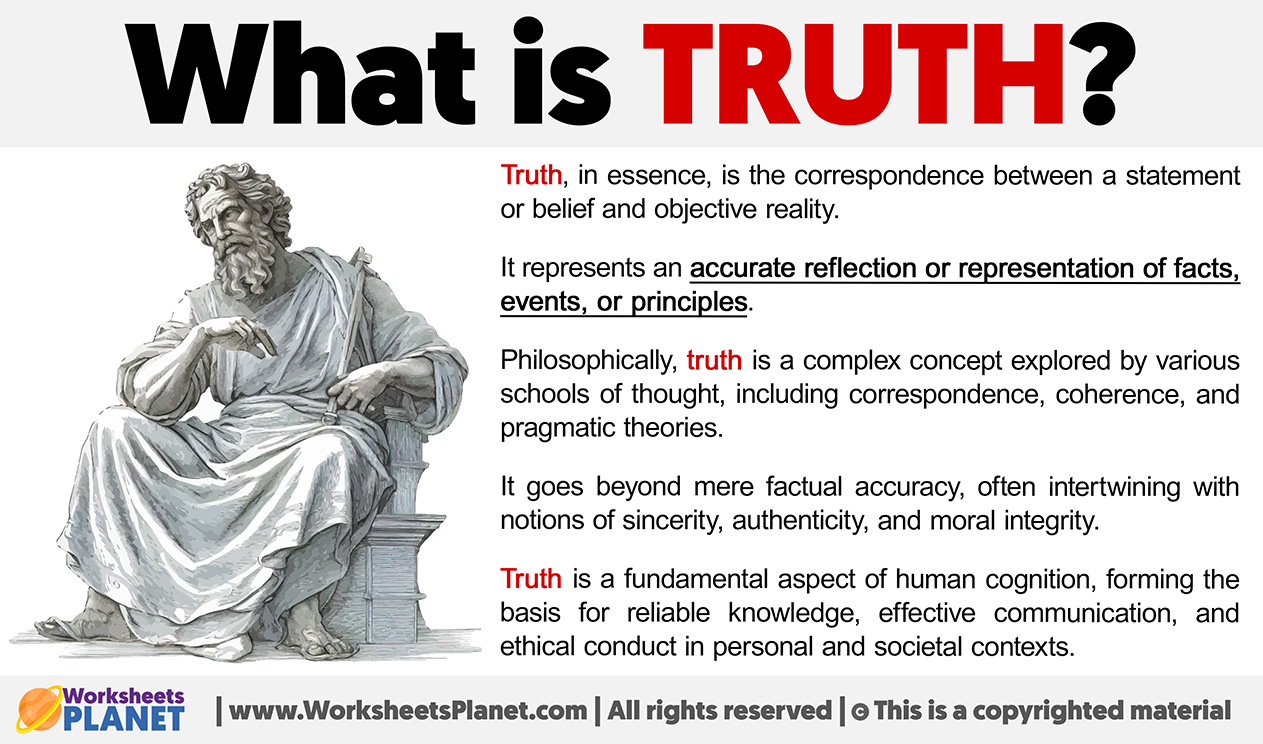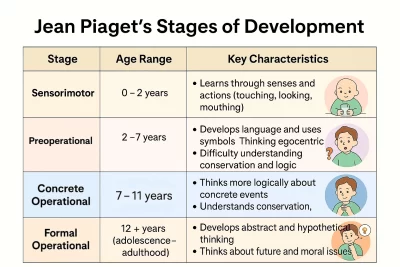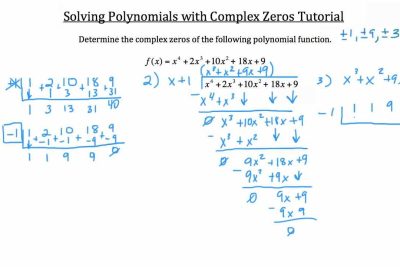
What are truth's definition, importance, theories, and facts

The concept of truth is one of the most profound and debated ideas in philosophy, linguistics, and logic. What does it mean to state something is true? Throughout history, philosophers have sought to dissect the nature of truth, giving rise to various theories and interpretations. In an age marked by information overload and differing perspectives, understanding the truth is more critical than ever.
As we dive deep into the meanings, importance, and theories of truth, we'll explore how this concept shapes our understanding of reality, knowledge, and belief systems. From Aristotle's correspondence theory, which emphasizes the alignment of statements with facts, to Richard Rorty's flexible approach that questions the very nature of the truth, this article aims to cover the broad landscape of truth and its relevance in both philosophical discourse and everyday life.
Definition of Truth
At its core, truth can be defined as the quality of being in accord with fact or reality. In the realm of philosophy, this notion encompasses various interpretations and frameworks. Aristotle famously proposed that the truth value of a statement is determined by its correspondence to the state of affairs in the world; if a statement reflects reality, it is considered true.
The Nature of Truth
Truth can occasionally be counterintuitive, especially when considering subjective experiences and interpretations. For example, personal beliefs can significantly shape one’s perception of the truth, leading to a divergence between one's understanding and the objective reality. Different philosophical approaches attempt to navigate these complexities, recognizing the multifaceted nature of truth.
Importance of Understanding Truth
Understanding the truth is vital for several reasons. It not only impacts our interpersonal relationships but also influences our societal structures, legal systems, and moral frameworks. When individuals share a common understanding of truth, they can engage in meaningful dialogue and cooperation. Conversely, conflicts often arise from differing interpretations of the truth, making it essential to explore and recognize these differences.
Truth and Its Impact on Society
In a larger societal context, the truth plays a pivotal role in governance, justice, and media. The reliability of information and transparency from leaders contribute to the overall health of a democracy. Furthermore, the quest for truth in scientific inquiry drives innovation and progress. Thus, a fundamental understanding of the truth serves both individual growth and communal advancement.
Theories of Truth
Philosophers have developed several theories throughout history to explain what constitutes truth. These include the correspondence theory, coherence theory, and pragmatic theory, each providing unique insights into how we discern and understand the truth.
Correspondence Theory
The correspondence theory, primarily attributed to Aristotle, suggests that a statement is true when it corresponds to a fact in the real world. This theory operates on the premise that facts exist independently of our beliefs or perceptions. However, the challenge lies in defining what qualifies as a fact and understanding the criteria for truth claims.
Coherence Theory
In contrast, coherence theory posits that truth is not merely a reflection of isolated facts but instead a feature of a cohesive system of beliefs. According to this view, a statement is true if it harmonizes with a broader web of interconnected beliefs. This approach allows for the existence of multiple perspectives, asserting that different systems can yield truth in varying contexts.
Pragmatic Theory
The pragmatic theory of truth emphasizes the usefulness of beliefs and statements in real-world applications. Here, the truth is assessed based on the outcomes resulting from accepting a belief or statement. Charles Sanders Peirce and William James were notable advocates of this theory, arguing that truth evolves and is contingent upon practical implications.
Challenges to Traditional Theories
While traditional theories of truth provide frameworks for understanding, they also face significant challenges. Critics argue that such theories often overlook the role of human cognition and social influence on our conceptions of truth. For instance, Ludwig Wittgenstein questioned the possibility of an objective truth that exists independently of human experience.
The Role of Belief and Interpretation
Belief and interpretation play a substantial role in shaping our understanding of truth. Different cultures and experiences lead to diverse beliefs about the truth, complicating the quest for a singular definition. These variations raise essential questions about the reliability of personal beliefs and the extent to which they align with objective reality.
Richard Rorty's Flexible Approach to Truth
Richard Rorty, a prominent postmodern philosopher, challenged traditional views of truth by arguing for a more flexible and pluralistic approach. He posited that instead of seeking absolute truth, we should focus on how our beliefs can be most beneficial in facilitating communication and understanding among diverse groups. Rorty emphasized that the truth is not a static entity, but rather a fluid concept that adapts to changing contexts and needs.
Conclusion
In conclusion, the exploration of truth reveals its complex and multifaceted nature. From its various definitions and theories to the significant importance it holds in society, understanding the truth is crucial for personal growth and collective progress. As we navigate a world filled with contrasting beliefs and perspectives, recognizing the value of truth and engaging in conversations around it allows us to foster understanding and harmony. Ultimately, the quest for the truth becomes not only a philosophical endeavor but a practical one that guides our actions and beliefs in daily life.
Did you find this article helpful? What are truth's definition, importance, theories, and facts See more here Education.
Leave a Reply






Related posts